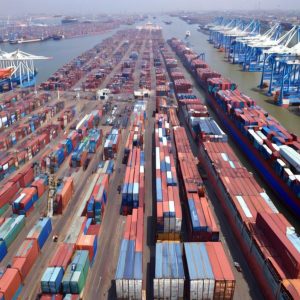
Economic regulator issues SOPs for Nigerian ports
Introduction
Following an executive order confirming it as the economic regulator of Nigeria’s ports, the Nigerian Shippers’ Council recently issued standard operating procedures (SOPs) that apply to various port users and operators. The SOPs are designed to fight corruption and make the ports more viable for economic activity through the application of technology. They are customised for different categories of operator, including:
government regulators; terminal operators; visiting ships; shipping companies; and support services.
SOPs
Separate SOPs have been developed to cover the operations of:
the Nigerian Ports Authority; the Nigerian Maritime and Safety Administration; the Nigerian Shippers’ Council; immigration, customs and drug law enforcement organisations; agricultural quarantine organisations; and the operators of each licensed private terminal.
The SOPs for terminal operators are generally similar and include standards regarding:
vessel reception; container booking and positioning; terminal delivery processes; invoicing; and container returns.
Maximum timeframes are allocated to many of the procedures and guidance on the billing of storage charges is also provided.
Relevant legal issues which may arise as a result of the SOPs include:
the issuing authority’s powers; and the relationship between the SOPs and the existing contractual or statutory obligations of the organisations to which they apply.
Perhaps more contentious is the issue relating to terminal operators that have previously contested the economic regulator’s powers.
Nigerian Shippers’ Council
The Nigerian Shippers’ Council derives its powers as economic regulator of Nigeria’s ports from the Nigerian Shippers’ Council (Port Economic Regulator) Order 2015. The order was issued by the president pursuant to his powers under Sections 5 and 148 of the Constitution to:
institute an effective regulatory framework for port efficiency; and address the negative effects of port concessions arising from the absence of an economic regulator. (1)
The order authorises the council to:
regulate the economic activity of Nigeria’s ports; regulate tariffs, rates, charges and other related economic services at the ports; and monitor all matters relating to the cost, standard and quality of services rendered by regulated service providers. (2)
The order also authorises the council to develop and enforce standard operating guidelines, regulate port concession agreements and undertake acts linked to its role as economic regulator. (3)
Under the order, the powers conferred on the economic regulator extend to all regulated service providers, including:
the Nigerian Ports Authority; seaport terminal operators; shipping companies and agencies; off-dock terminal operators; cargo consolidators; logistics service providers; freight forwarders and clearing agents; inland container depot operators; stevedoring companies; and any other port service provider or user. (4)
On the strength of the powers conferred by the order and Section 9 of the Nigerian Shippers’ Council Act 2004, the minister of transport published the Nigerian Shippers’ Council (Port Economic) Regulations 2015, authorising the council to monitor and enforce standards of service delivery, among other things, to ensure availability, accessibility, affordability, stability, predictability and adequacy of services. The regulations also authorise the council to:
encourage competition and guard against the abuse of dominant market positions; regulate market entry and exit; and ensure that all parties comply with the provisions of the port concession agreements. (5)
Port concession agreements
The government entered into various port concession agreements with terminal operators when there was no economic regulator for the ports. Nonetheless, the agreements include provisions which assume or anticipate the existence of such a regulator. Further, in a seminal judgment in a case brought by terminal operators, the Nigerian Federal High Court held that the Nigerian Shippers’ Council was validly appointed and must act as the economic regulator. (6) As a result, the council’s existing role does not conflict with the concession agreements.
Comment
The SOPs are expected to streamline port activities significantly and ensure improved efficiency and greater value for money. They may also reduce the number of disputes and litigation brought by port users that are unhappy with the services provided by operators.
For further information on this topic please contact Emeka Akabogu at Akabogu & Associates by telephone (+234 1460 55550) or email (emeka@akabogulaw.com). The Akabogu & Associates website can be accessed at www.akabogulaw.com.
Endnotes
(1) Order 1, Nigerian Shippers’ Council (Port Economic Regulator) Order 2015.
(2) Order 2, Nigerian Shippers’ Council (Port Economic Regulator) Order 2015.
(3) Order 3, Nigerian Shippers’ Council (Port Economic Regulator) Order 2015.
(4) Order 5, Nigerian Shippers’ Council (Port Economic Regulator) Order 2015.
(5) Regulation 3, Nigerian Shippers’ Council (Port Economic) Regulations 2015.
(6) Suit FHC/L/CS/1646/2014. Though the matter is under appeal, in accordance with Nigerian law, the judgment defines the existing legal position on the matter.
The materials contained on this website are for general information purposes only and are subject to the disclaimer. ILO is a premium online legal update service for major companies and law rms worldwide. In-house corporate counsel and other users of legal services, as well as law rm partners, qualify for a free subscription.
